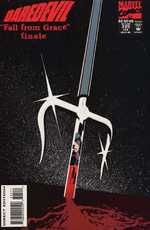Learn a new word Thursday: Knightian Uncertainty
Welcome back to the latest installment of 'Learn a new word Thursday' where I share with you some small, but hopefully interesting and relevant word or concept that since it is new to me, must be new to (many of) you as well.
Submitted for your consideration today's word/concept: Knightian uncertainty.
From your pals at Wikipedia:
In economics, Knightian uncertainty is risk that is immeasurable, not possible to calculate.
Knightian uncertainty is named after University of Chicago economist Frank Knight (1885–1972), who distinguished risk and uncertainty in his work Risk, Uncertainty, and Profit:
"Uncertainty must be taken in a sense radically distinct from the familiar notion of Risk, from which it has never been properly separated.... The essential fact is that 'risk' means in some cases a quantity susceptible of measurement, while at other times it is something distinctly not of this character; and there are far-reaching and crucial differences in the bearings of the phenomena depending on which of the two is really present and operating.... It will appear that a measurable uncertainty, or 'risk' proper, as we shall use the term, is so far different from an unmeasurable one that it is not in effect an uncertainty at all."
Did you catch the distinction laid out there, between 'risk', which can generally be measured and estimated (and therefore planned for); and 'uncertainty' of the kind that is not measurable at all, the so-called 'Knightian' uncertainty.
For example, we might be able to assess the 'risk' of any given commercial flight arriving more than an hour late say, but we have no real ability to estimate the likelihood of any given route being profitable in say, 25 years time.
Let's read that again just so we are sure it sinks in, a measurable uncertainty... is so far different from an unmeasurable one that it is not in effect an uncertainty at all.
So the lesson here is to be a little more careful, and a little more precise when tossing about terms like 'risk' and 'uncertainty.' If you can measure it, can draw some reasonable conclusions about the likelihood of an occurrence (or failure for something to occur), and can get smarter over time from these practices, then whatever it is probably isn't 'uncertain' at all.
And the interesting thing from an HR and talent management perspective is that with the rise of more sophisticated technologies for assessment, competency, skill, and massive amounts of actual workforce data upon which to test our theories, more and more 'people' decisions are becoming much less uncertain and simply more risky.
Which doesn't sound like much of an improvement until you realize that just a few years ago just about every people-related decision was an uncertainty. Perhaps even a Knightian uncertainty.

 Steve
Steve



